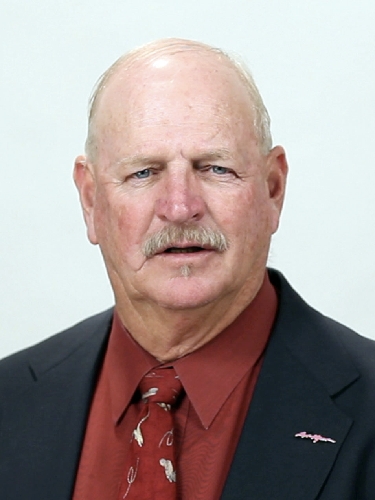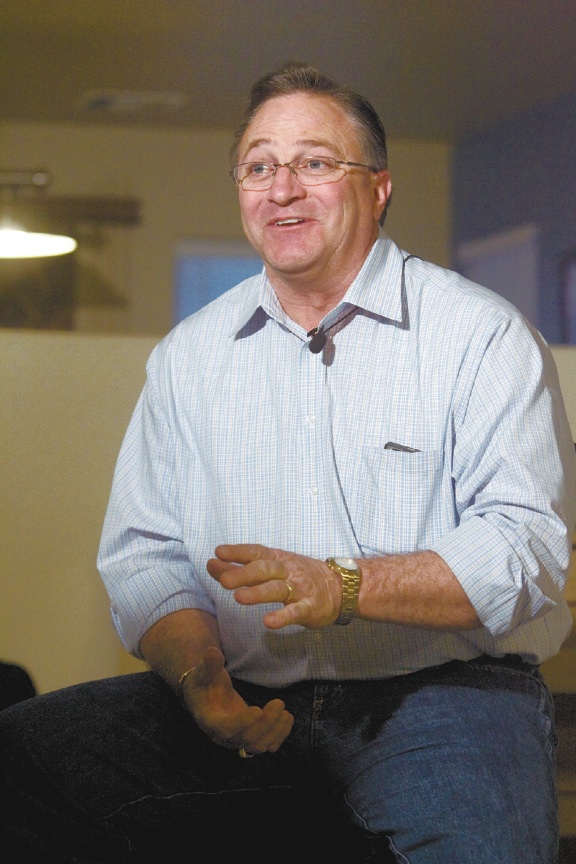Southern Nevada officials call for tax increase
CARSON CITY - Several leading Southern Nevada politicians said Friday that taxes must be increased, or they cannot provide necessary services in their county or city.
"You can't go on trying to run your city on half the property tax (compared to before the recession)," said Clark County Commissioner Tom Collins during the Local Government Summit, which attracted about 60 city council and county commission members from across the state.
"Raise the damn property tax."
Las Vegas City Councilman Steve Ross called on state legislators next year to give local governments authority to raise taxes on their own. He noted the state sales tax system was created in 1955, a time when most sales were on products compared with today when most purchases are on untaxed services.
He said later that his city faces a "fiscal cliff," just as the federal government does.
"We cannot continue to do it the same way," Ross said. "We have to send (that message) to Carson City. Commissioner Collins is right. We represent the same people (as legislators). We don't want Band-Aids on us anymore."
But in an interview later, Ross said his comments should not be interpreted to mean he supports all tax increases or everything that Collins said. "I am not a big tax fan, but taxes are part of the solution."
Las Vegas City Councilman Bob Coffin was emphatic that tax increases are essential. "We can't keep up the pipes or streets or the lights anymore without having the ability to tax," he said. "Every city is in the same situation. We are falling apart."
The Local Government Summit was organized by the Nevada League of Cities and the Nevada Association of Counties to give local elected officials a chance to discuss mutual problems and hear reports on revenue, economic development and home rule. The only other known similar summit was conducted several years ago in Henderson.
Collins asked the assembled public officials whether they get together and talk about their concerns. Only a handful of county commissioners said they ever met with city council members, and vice versa.
As it stands now, local governments in Nevada lack financial home rule, the ability to levy higher taxes without approval of the Legislature.
In addition, it takes a supermajority, two-thirds vote of legislators in both houses, to pass a tax increase. Republican Gov. Brian Sandoval already is on record that he will veto any bill increasing new taxes. Legislative Democrats are four votes short of having a two-thirds majority.
'FUNCTIONAL HOME RULE'
Next year legislators will hear proposals to change how state taxes are distributed to counties and cities and how to fund public schools and the college and university system. While taxing services has been discussed at several recent sessions, no enabling bill has come up for a vote.
Jeff Fontaine, director of the counties association, said his organization is seeking approval of a bill to bring local governments "functional home rule." Others described that as the ability to govern their communities or counties on a day-by-day basis. Some elected officials said the state still exerts control over their planning and zoning decisions, how they run their hospitals, and even if they can move an abandoned car or levy a service fee.
Most of the support for higher taxes came from officials in heavily Democratic Clark County. Both Coffin and Collins are former Democratic state legislators. Few comments were made on that subject from representatives in Washoe County or predominantly Republican rural Nevada.
The Association of Counties and the League of Cities kept track of ideas made by elected officials and will ask them later to decide which ones should be recommended to the Legislature.
The meeting began with Jeremy Aguero, a principal with Applied Analysis in Las Vegas, saying that since the beginning of the recession, Nevada's cities and counties have lost half of the money they used to receive from property taxes. That is largely because of declining property values and legislative requirements limiting how much they can raise property taxes annually and a 1.5 percent annual property depreciation requirement.
Because of these requirements, he said, it might take a long time to return to normal even with an economic recovery. One official put that time at 24 years.
Aguero also noted that the state now levies sales taxes on one-third of the possible products and services it could tax. When property taxes were first implemented in 1955, most products were taxed, but now the most sales in the state are for services, and two-thirds of them escape taxation, he said.
His presentation brought many complaints from elected officials, particularly from Southern Nevada, about the Legislature and their inability to raise taxes on their own.
OFFICIALS' SUGGESTIONS
Las Vegas Mayor Carolyn Goodman suggested that the state levy a $5-a-person annual recovery tax that would be reconsidered in five years.
Mineral County Commissioner Cliff Cichowlaz said the state needs an income tax, sales tax increases and even a tattoo tax.
None of those ideas got much response from fellow local government officials, although Goodman emphasized again later that an economy recovery tax is necessary.
While the elected officials were talking about increasing taxes, no one rose to say anything during the time for public comment.
But besides the elected officials, the crowd appeared to consist only of people with ties to government, including two legislators, and no average citizens.
Collins, however, said in an interview that he is an average person whose salary has dropped and he does speak for typical residents.
Assemblymen Pete Livermore, R-Carson City, and Tom Grady, R-Yerington, said after the meeting that they could not support tax increases.
"Right now I cannot support tax increases," said Grady, noting that he would not back higher taxes unless it could be clearly shown that there is no other way for local government to provide basic services.
Livermore said increasing taxes would only drive away businesses that could relocate in Nevada.
Both said the Legislature and local governments need first to look at cutting spending before considering tax increases.
Contact Capital Bureau Chief Ed Vogel at evogel@reviewjournal.com or 775-687-3901.





























